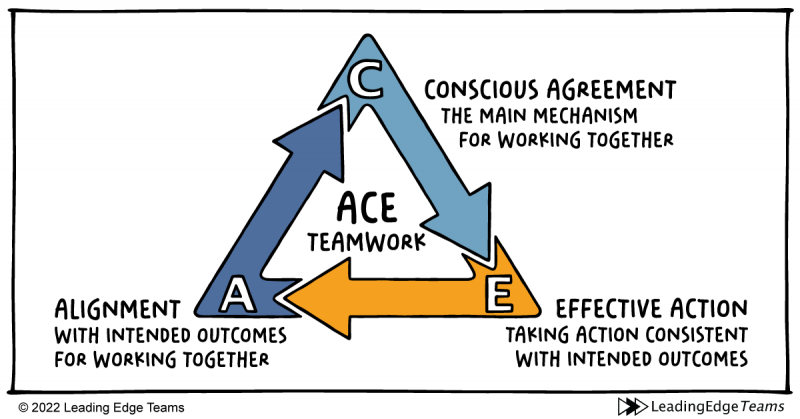Let's talk about Redefining Accountability. We quickly notice and judge when others are NOT accountable, but rarely think of ourselves as unaccountable. So what does it really mean to be accountable in business today?
Most people think accountability is all about keeping commitments and agreements. The perception is that if you keep your explicit promises then you're accountable. I find this definition not only lacking, but also pretty useless. It’s easy to “keep your commitments” and do the things you explicitly said you’d do, while at the same time not achieve the intended outcomes whatsoever. It’s also common to break some agreements and achieve the greater goal you were going for.
So in those two scenarios, who’s the accountable one? Or is it both or neither?
Accountability is about something greater than just keeping your explicit commitments and agreements. And frankly, just keeping you commitments isn’t enough to perform well given the high demands and extreme pace of business in 2019.
In the work my team and I do with CEOs, Entrepreneurs, and Business Leaders, we have had to expand and clarify the definition of accountability. We find that accountability is best defined as “taking action consistent with intended outcomes.”
Key Take-a-way
This is the key distinction I want you to understand and implement: If you want someone to be accountable for a result, make sure they fully understand what that intended result is, AND that they commit to doing the tasks that will best achieve that result. If something changes in the situation, they may need to re-negotiate or cancel commitments in favor of taking actions that will work best.
You start helping people become more accountable by delegating outcomes NOT tasks.

When a team knows the outcomes they are going for, they have an expanded view for engaging their critical thinking when doing the tasks. They will naturally form the smaller steps and put them together to achieve the outcome. Take this for example:
You want your customer service department to be more responsive (aka answer faster), but if you have people just commit to answering faster without the understanding of the greater intended results (happier customers), you could easily end up with a team that answers fast but unfriendly, making customers angry instead of happy. By delegating the task, you now have a bigger problem than you started with. Instead what we want to hold the team accountable to is a happier, more satisfied customer who buys more often.
With this alignment the tasks may change but they will serve this bigger vision of outcome, and you will achieve the intended result- better customer care.
Give it a try!
Next time you are working with your team, make sure the bigger outcome is clear first, don't just dive into handing off tasks. Get your team going for the outcomes, and engage their critical thinking. Then they’ll do problem solving along the way, and raise issues early. This allows your team to achieve way more results with way less of your help and support. Just think what you can do if you don’t need to support your team as much!.
Getting your team accountable to achieving outcomes is a game changer.
Now, get out there and lead!
– Annie










